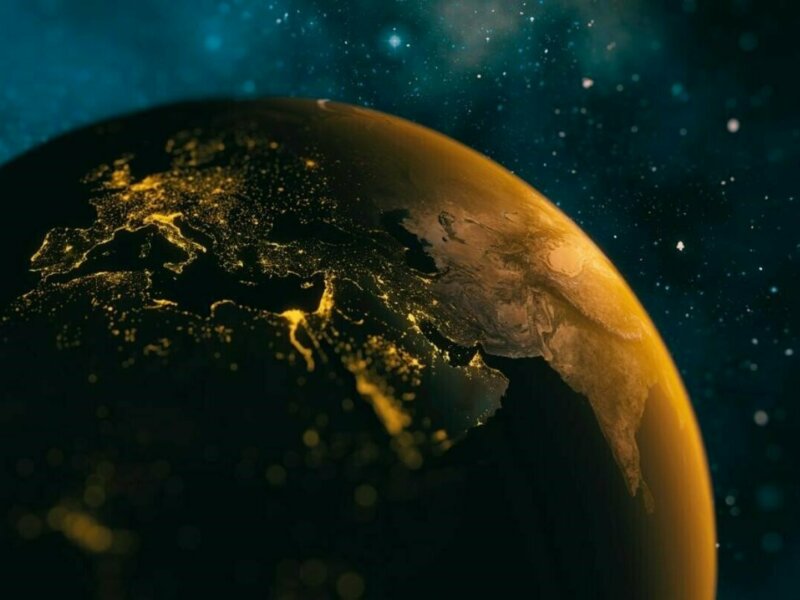Russia and the conflict in Gaza
Russia’s stance in the new international context and in the Middle East conflict. Potential implications on the conflict in Ukraine. An analysis by Giorgio Cella

roundex / Shutterstock.com
More than a month and a half into the high-intensity battle, Israel and Hamas have joined the other terrible Russian-Ukrainian conflict theater, which, after nearly two years, still sees no realistic exit strategy. Two major crises with incalculable future trajectories, against the backdrop of an almost anarchic and highly fragmented international system. A system clearly ruled by the Sino-U.S. management duopoly, in growing competition and at the same time unavoidable dialogue, as implicitly reaffirmed by Joe Biden and Xi Jinping’s November 15 meeting in San Francisco. In this context, Russia, a power in decline after decades of Cold War dominance but still influential in some global dimensions, is undergoing strategic repositioning. In Russia’s historical oscillation between the West and Asia, Moscow’s increasingly strong Eurasian integration in the aftermath of the 2014 Ukrainian crisis means a focus on both the relations with China and with the Islamic world. This premise turns out to be a prelude to defining the international balances in which Russia is currently navigating. A global arena in which a new alternative front to the West is gradually emerging, formalized also during the UN voting at the General Assembly on October 27 for the resolution of a humanitarian truce in Gaza. Concerning Russian diplomatic intervention in the Israeli-Palestinian crisis and in the broader Middle East framework, there are multiple elements that structurally condition Russian engagement in the area.
Relations with the Jewish world - both domestically and externally vis-à-vis the State of Israel - and with the Muslim world – again both domestically and in terms of bilateral relations with the various Islamic actors in the region - create a situation in which the Kremlin must operate by pursuing a delicate and risky balancing act.
Starting with the Jewish world, Putin’s Russia has established generally solid ties with Tel Aviv, as evidenced by the Israeli government’s reluctance to provide the weaponry that the Zelenskyy government had demanded. A cooperative approach has also largely characterized Putin and Netanyahu’s personal relationship, even in the face of certain anti-Semitic remarks made by Russian government officials in the past year. Russia is still important to Israel because it has a military presence in Syria and supports Bashar al-Assad’s regime. Over time, official and informal agreements have been made between the two countries to coordinate American and Israeli military actions in Syria, whether directed against ISIS or against Iranian-backed Shiite factions. Last but not least is the demographics, namely the massive presence of Russian-speaking Israelis from the former USSR residing in Israel, estimated to be more than 1.3 million people.
On the other hand, the domestic sphere must also be considered first and foremost in order to understand the Kremlin’s policies in relation to the Islamic world: stretching from the North Caucasus to Tatarstan to the capital Moscow, where more than three million Muslim citizens live, Russia is home to an increasingly large Islamic community of more than 20 million citizens of the Islamic faith, who are, among other things, not very secularized and generally religious-Sunni denominations. The aforementioned facts demonstrate the implicit influence that this reality exerts on the Kremlin’s foreign operations - the attempted lynching of Israeli passengers at the airport in the Dagestan capital is just one example – and how this influence may still increase in the future due to the country’s steadily growing demographic record. Moreover, Moscow has long been, regardless of its positive relations with Israel, the geopolitical and military point of reference - in recent years also joined by China, especially economically -, for the Shiite axis, particularly with Iran under the Ayatollahs. The controversial invitation of a Hamas delegation to Moscow, is to be framed in the context of both cynical Realpolitik and the complexity of the previously mentioned elements, and at the same time also in the persistent strategy aimed at undermining or damaging American interests in the world and, more generally, those of the “collective West”, so often referred to by Putin.
A final consideration that clears the intricate geopolitical context descried so far is Moscow’s desire to once again be a diplomatic force in international affairs, that is at the levels it reached prior to the conflict in Ukraine. This desire becomes essential in order to restore Moscow’s military power image, which has been damaged by the campaign in Ukraine. The emergence of the new conflict in the Middle East, at least in the short term, certainly plays in Moscow’s favor for two orders of reasons. First, it serves as a general diplomatic and media diversion from the conflict; second, it complicates U.S. arms and ammunition supplies to Kiev, thereby also weakening Zelenskyy’s role. The coming months will reveal how Washington manages to maintain its assistance for its two allies and whether, if at all, there will be any compromise or redistribution of the U.S. support for Ukraine.



